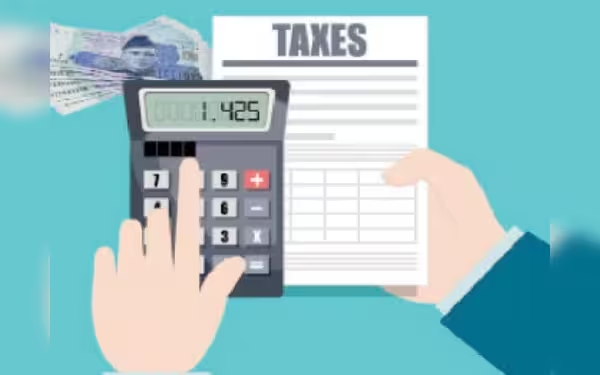Sunday, December 22, 2024 03:15 AM
FBR Tax Collection Shortfall of Rs356 Billion Raises Concerns
- FBR reports Rs356 billion tax collection shortfall.
- Economic instability and inflation impact revenue.
- Government must reassess tax collection strategies.
 Image Credits: tribune.com.pk
Image Credits: tribune.com.pkFBR faces a Rs356 billion tax collection shortfall, raising concerns over fiscal management and economic stability in Pakistan.
In a significant setback for the government of Prime Minister Shehbaz Sharif, the Federal Board of Revenue (FBR) has reported a staggering shortfall of Rs356 billion in its tax collection target for the first five months of the fiscal year. This alarming figure raises serious questions about the effectiveness of the current tax policies and strategies employed by the government. Despite efforts to enhance revenue through various means, including hiring foreign-funded consultants and providing new vehicles to tax officials, the results have been far from satisfactory.
During the period from July to November, the FBR struggled to meet its targets for key revenue streams such as sales tax, federal excise duty, and customs duties. While it did manage to surpass its income tax goal, the overall performance indicates a troubling trend. The failure to achieve these targets not only reflects poorly on the government's fiscal management but also highlights the challenges faced in the broader economic landscape of Pakistan.
The shortfall in tax collection can be attributed to several factors, including economic instability, inflation, and a lack of effective enforcement measures. Many taxpayers are feeling the pinch of rising costs, which may have led to reduced spending and, consequently, lower tax revenues. Furthermore, the reliance on external consultants raises concerns about the sustainability and appropriateness of the strategies being implemented.
As the government grapples with this financial challenge, it is crucial to reassess its approach to tax collection. Simply throwing money at the problem or relying on foreign expertise may not yield the desired results. Instead, a more comprehensive strategy that focuses on improving taxpayer compliance, enhancing transparency, and fostering a culture of accountability within the FBR is essential.
The FBR's failure to meet its tax target by Rs356 billion serves as a wake-up call for the government. It underscores the need for a more effective and sustainable approach to tax collection that prioritizes the needs of the citizens and the economy. As Pakistan navigates these turbulent economic waters, it is imperative that the government takes decisive action to rectify its fiscal policies and restore public confidence in its ability to manage the nation's finances.













